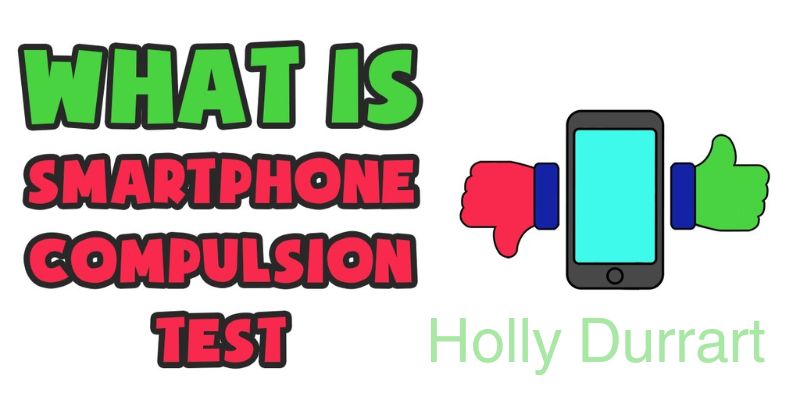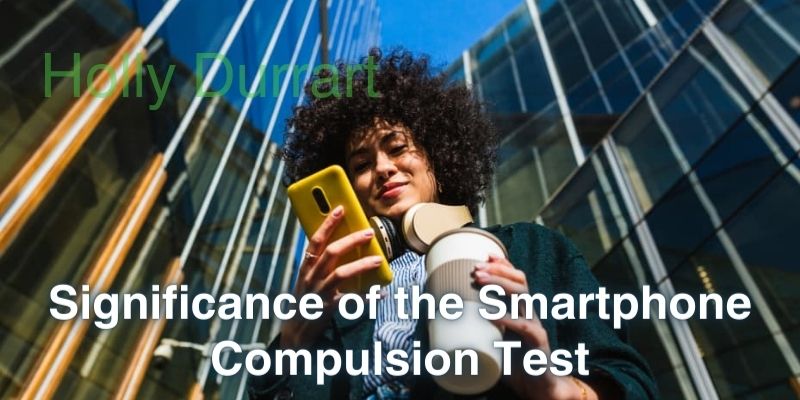In an era dominated by technological advancements, smartphones have become an integral part of our daily lives. While these devices offer unprecedented convenience and connectivity, concerns have arisen regarding excessive smartphone use and its potential impact on mental health. Researchers and psychologists have developed tools such as the Smartphone Compulsion Test to assess and understand the extent of smartphone addiction. In this article, Hollydurrart delve into the details of the Smartphone Compulsion Test, exploring its key components and significance in identifying problematic smartphone use.
Understanding the Smartphone Compulsion Test
The Smartphone Compulsion Test, often abbreviated as SCT, is designed to evaluate various aspects of smartphone use behavior. Developed by Dr. Seunghee Lee-Kwon and colleagues, this test consists of a series of questions aimed at capturing different facets of smartphone addiction or compulsion. By analyzing responses to these questions, researchers and mental health professionals can gain insights into the severity of an individual’s smartphone-related behaviors.

Questionnaire Components
The questionnaire typically includes a set of questions that address key indicators of smartphone compulsion. These questions cover a range of topics, from time management to emotional well-being. Let’s explore some sample questions commonly found in the Smartphone Compulsion Test:
- How often do you find yourself spending more time on your smartphone than you intended?This question aims to assess self-awareness and control over smartphone use. Individuals who frequently exceed their initially planned smartphone usage may exhibit signs of compulsive behavior.
- Do you feel restless or anxious when you are unable to use your smartphone?The emotional component of smartphone compulsion is addressed in this question. Feelings of restlessness or anxiety when separated from one’s smartphone can indicate dependency and a potential issue.
- Have you tried unsuccessfully to cut down on your smartphone use?The acknowledgment of unsuccessful attempts to reduce smartphone use highlights the challenges individuals face in breaking free from compulsive behavior.
- Do you neglect other responsibilities or activities because of your smartphone use?This question delves into the impact of smartphone use on daily life. Neglecting responsibilities or activities may suggest that smartphone use is interfering with other crucial aspects of an individual’s life.

- Do you use your smartphone as a way to escape from negative feelings or situations?Emotional coping mechanisms are explored here, emphasizing the role of smartphones as a means of escape. This question sheds light on whether individuals are using smartphones as a form of emotional avoidance.
- Have others expressed concern about the amount of time you spend on your smartphone?Social implications are considered in this question. If friends, family, or colleagues express concern about an individual’s smartphone use, it may indicate that the behavior is noticeable and potentially problematic.
- Do you feel a need to constantly check your smartphone for updates or notifications?Constant checking for updates or notifications suggests a heightened need for constant connection, reflecting a possible compulsion to stay updated at all times.
- Do you experience physical symptoms such as headaches or eyestrain due to excessive smartphone use?Physical well-being is addressed here. Prolonged smartphone use may lead to physical symptoms, and this question helps in assessing the potential negative impact on health.
- Do you find it difficult to concentrate on tasks or conversations because you are thinking about your smartphone?Attention and focus are critical aspects of daily functioning. If smartphone-related thoughts interfere with concentration, it may indicate a compulsive preoccupation.
- Have you ever lied to others about the amount of time you spend on your smartphone?Honesty and transparency are crucial in relationships. Lying about smartphone use suggests a recognition of excessive behavior and a desire to conceal it from others.
Significance of the Smartphone Compulsion Test
The Smartphone Compulsion Test serves as a valuable tool in identifying and understanding problematic smartphone use. By systematically assessing different dimensions of behavior, the test enables professionals to gauge the severity of smartphone compulsion. Here are some key reasons why this test is significant:

-
Early Intervention:
The test provides a structured approach to identify signs of smartphone compulsion early on. Early intervention is crucial to prevent the escalation of problematic behaviors and mitigate potential negative consequences.
-
Tailored Treatment:
Understanding the specific aspects of smartphone compulsion through the test allows mental health professionals to tailor interventions and treatment plans to address the unique needs of individuals. This personalized approach enhances the effectiveness of interventions.
-
Awareness and Education:
The test fosters awareness about the potential negative impacts of excessive smartphone use. Individuals who may not be fully aware of the extent of their smartphone compulsion can gain valuable insights through the questionnaire, promoting self-reflection.
-
Research and Data Analysis:
Aggregated data from the Smartphone Compulsion Test can contribute to research on smartphone addiction and its prevalence. This research is essential for developing evidence-based interventions and understanding the broader societal implications of smartphone compulsion.
Conclusion
In the rapidly evolving landscape of technology, understanding and addressing smartphone compulsion are vital for maintaining a healthy balance between digital engagement and well-being. The Smartphone Compulsion Test offers a comprehensive and systematic approach to assessing problematic smartphone use, enabling individuals and professionals to identify, understand, and address potential issues. As smartphones continue to play a central role in our lives, it becomes increasingly important to prioritize mindful and intentional usage to ensure a harmonious relationship with these powerful devices.